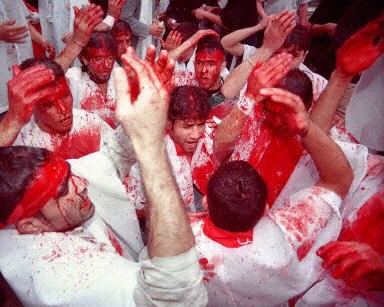What's the best deed ?
What makes us great before Allah? During Ramadan, we did plenty of virtuous deeds to impress Allah. We stood so long in prayers, we fasted and gave a great deal of charity day and night in Ramadan in the hope that Allah would give us great rewards and forgiveness in return.
But we might have missed something important here.
Abu Hurayrah reported: The Messenger of Allah (ﷺ) said:
"Take up good deeds only as much as you are able, for the good deeds are those done regularly even if they are few." (Sunan Ibn Majah, 4240)
It's not about how long you can stand in prayer or how much you can give in charity either. It's all about consistency or what we call persistence (istiqamah). So it's okay if you only did small deeds in Ramadan because those small deeds can turn into good deeds if you keep doing it outside of Ramadan and even until you die.
It's been the tradition of our predecessors to preserve the good deeds until they die.
There's a hadeeth called by hadeeth musalsal (It is a ḥadīth whose narrators share the same attribute or same state or in which the narration has one state or one attribute. The attributes of the narrators may be verbal or practical and the attributes of the narration may relate to the way of narration, the time of narration or the place of narration. https://www.ihsaninstitute.co.uk/articles/the-musalsalat-in-hadith-linking-the-present-to-the-past-). It was narrated by ummu habeeba, one of the wives of rasulullaah.
The Prophet (peace and blessings of Allaah be upon him) said: "Whoever prays twelve rak'ahs in his day and night, build a house for him in Paradise." Narrated by Muslim
Muslim narrated that the hadeeth was narrated from the path of Anbasa ibn Abi Sufyan, the brother of umm habeeba from Umm Habeeba. Then imam Muslim said after he narrated the hadeeth : Umm Habeebah (may Allaah be pleased with her) said : [I have not left them (the twelve rakaahs) since i heard it from the messenger of Allah]. 'Anbasa said [and i haven't left them since i heard it from ummu habeeba]. Amr ibn Aws, the narrator from 'Anbasah said: [I haven't left them since i heard it from 'Anbasa], and said Al-Nu'man bin Salem, narrator from Amr: [i haven't I left them since i heard it from Amr ibn Aws]
In another story, 'Abdul Mun'im Ibn Idris reported on the authority of his father that Sa'id ibn Musayyib, the leader of Tabi'in used to pray the morning prayer with the wudu he had made at the time of the night prayer for 50 years! He would worship throughout the night between Isha' and Fajr. Sa'id bin al-Musayyib said about himself, "I have not missed the first takbir (Takbiiratul-Ihraam) in the prayer for about 50 years ... nor have I seen the back of a man's foot in prayer for 50 years," i.e. He was always present in prayer congregation in the first row!
After reading a glimpse of our predecessors' life with their ibadat, how are we gonna do with ours? Along with this i would like to encourage you to persist a continuous deed in order to put the first hadith into practice and follow the great examples from the best people of Islam. Happy worshipping!








